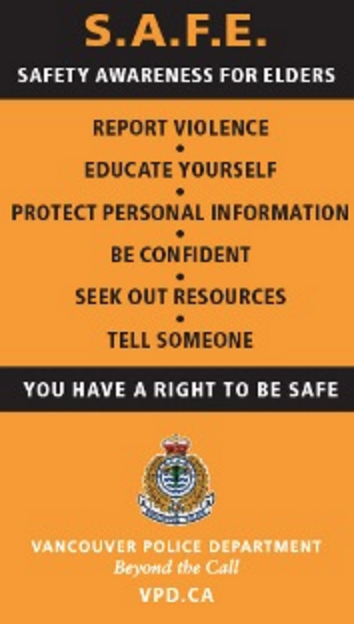Blog
- Details
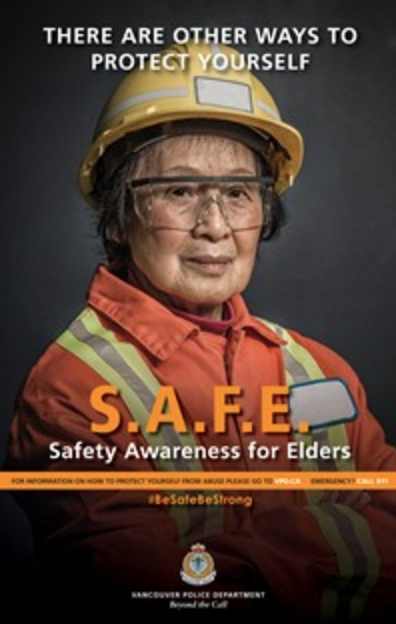 On World Elder Abuse Awareness Day,
On World Elder Abuse Awareness Day,
Vancouver Police launched their new S.A.F.E. program (Safety Awareness For Elders). The program's aim is to educate seniors, family members, and care providers to recognize the signs of elder abuse and to know where to seek help.
Learn the warning signs, find safety tips to protect yourself and others from the different kinds of abuse, as well as contact information for other organizations where you can find help and referrals here.
- Details
By Horacio Tejera
Between 2012 and 2014, ASHTOR (Association of Spanish Speaking Seniors of Toronto), in partnership with Family Service Toronto and advised by Latin@s en Toronto, developed a comprehensive program -funded by New Horizons for Seniors- to raise awareness and knowledge on elder abuse among the Spanish-speaking community.
- Details
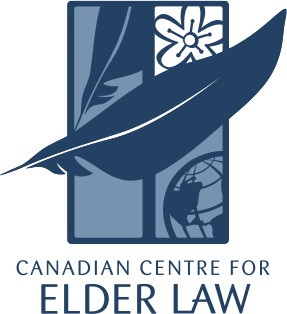


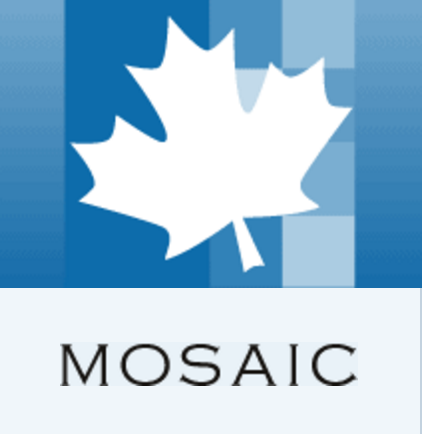
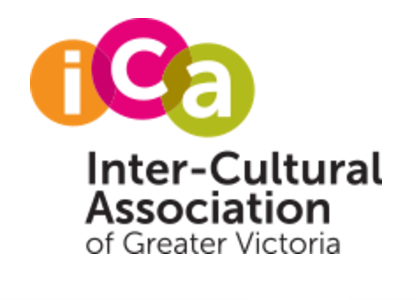
by Raissa Dickinson
World Elder Abuse Awareness Day (WEAAD) was launched on June 15, 2006 by the International Network for the Prevention of Elder Abuse and the World Health Organization at the United Nations. It is a day for communities around the world to voice opposition, share information and spread awareness about the abuse and neglect of older adults. The Canadian Centre for Elder Law (CCEL) proudly celebrates WEAAD and was pleased to speak about the Elder Abuse in Chinese and South Asian Communities project with CBC news this morning.
The project is a collaboration between the CCEL and the Institute on Aging and Lifelong Health at the University of Victoria, the National Initiative for the Care of the Elderly (NICE), MOSAIC, and the Inter-Cultural Association of Greater Victoria and is focused on exploring the nature of elder abuse in Chinese and South Asian communities and developing educational tools to help service providers address the needs of older adults.
Listen to the interview here – Jump to 2:20.
- Details
- Introduce yourself to local media outlets and trade publications in your community. Let them know who you are and what you do. Build a relationship even when there is nothing to talk about so when a story does come up you already have an established rapport.
- Be ready before the call from the press comes in. Prepare common Q&A questions and a project backgrounder with 3 key points about your project.
- Don't be afraid to ask for interview questions ahead of time, select and change questions to help shape the content and get the best story out.
- Focus on the human element of elder abuse and back it up with statistics. Be able and ready to offer perspectives on the many impacts of elder abuse.
- Media loves interviews from elder abuse survivors, but these are very difficult to find and may put an elder at risk for further abuse. Alternative strategies include preparing a short fictional case study, asking an elder if they could provide an anonymous quote, identify an older adult ‘champion’ advocate of elder abuse, or consider asking a partner organization to provide a quote based on their experiences.
- Media Jack: If the media publishes an elder abuse story that sends a wrong message, contact them and ask them to comment on the case. Can be used to turn a negative elder abuse story into a call to action/ behaviour change.
- Address and redirect: don’t like the question the media is asking you? Acknowledge the question: “I can’t answer that question but what I can tell you is…” and readdress to an issue that you can talk about.
- Press releases work well when they are concrete and specific– provide statistics to back your story up and add a quote from an elder abuse survivor to make it more personable.
- Have a big press release? Work with media under an embargo and get them the story ahead of time – it is easier for the media and more likely to be published.
- Your organization should have designated media spokespeople. Also identify spokespeople from partner organizations – elder abuse is a complicated topic but you do not need to explain everything in a short media clip. Instead ask the media to also contact your partner organizations (e.g. police, OT’s, academia) to add a diversity of perspectives.
(Read Part 1: Elder Abuse Knowledge Mobilization: From “Hubs” to Headlines )
About the author:
Raissa Dickinson is the Manager of Community Engagement at the Canadian Centre for Elder Law. Her work at the Centre supports multiple initiatives pertaining to social policy, community development, legal research and reform. Raissa obtained a Masters in Public Health from the University of British Columbia in 2013 and Project Management Professional Certification in 2015. Experiences in the public health and project management range from community based research, knowledge translation, planning and policy development. Raissa has strong roots in community development and has provided support to people within the intersections of mental health, substance abuse, homelessness and violence against women.
- Details
On May 26th 2016, the CNPEA hosted an interactive workshop at the National Institute for the Care of the Elderly (NICE) Annual Knowledge Exchange. The idea for the workshop was based on the notion that the elder abuse community has long struggled with communications and how to get its message out. Elder abuse and neglect issues are still mostly in the shadows and the Elder Abuse prevention community has been far behind other social justice movements. Until recently, in Canada there wasn’t a single “go-to” online resource hub. As a community, we do not yet have some of the media savvy required to move from grass-roots issues, or research findings into the social, print and TV media world.
Page 42 of 55


